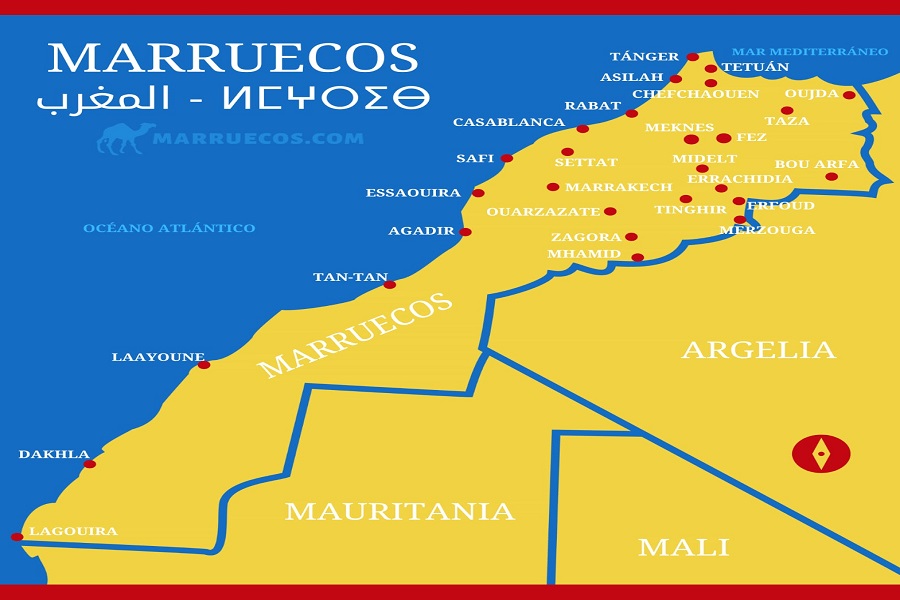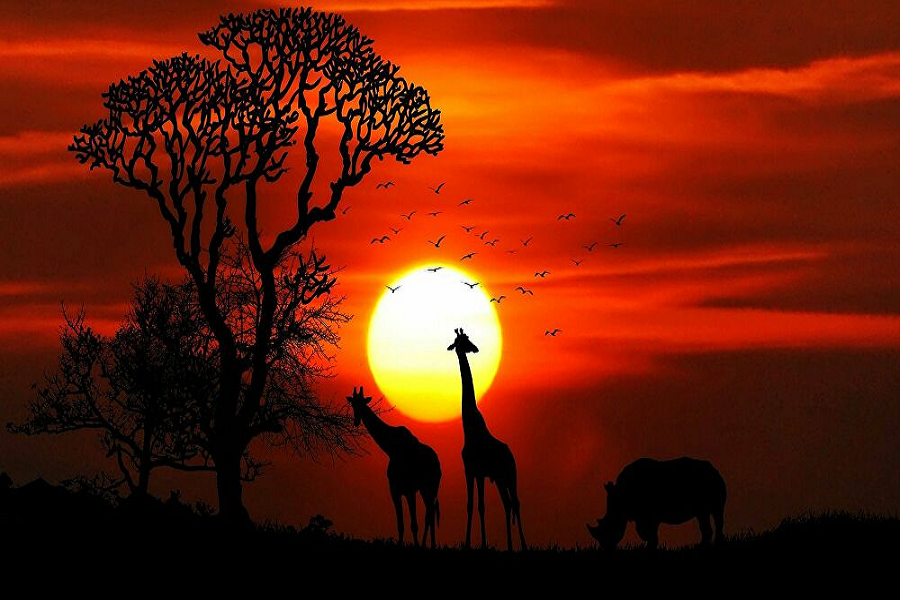With nearly 50 years of history, the dispute in the Sahara represents one of the greatest unresolved international conflicts. More than 270,000 square kilometres frame differences that have brought many struggles, griefs, broken dreams, lost years and disappointments. But in recent weeks, the issue has come to attention once more due to a particular fact.
Trump recognizes Moroccan sovereignty of Western Sahara
Unsurprisingly, America’s recognition of Morocco’s sovereignty over Western Sahara has several aspects worth analysing.
The Trump administration’s decision has a political, economic and social effect.
Politically, the long-running strategic relationship between the United States and Morocco stands out. Since the Cold War, both countries have remained close.
The United States has supported Morocco’s various attempts to seek a solution to the Western Sahara dispute. Unfortunately, a referendum defining the future of the territory has never been possible in the area.
In 2018, the United Nations enacted resolution 2440 (On the extension of the mandate of the United Nations Mission for the Referendum in Western Sahara). In short, it was proposed that the solution to the conflict in the Sahara passes through the holding of a referendum. The proposal had the support of almost all the member countries of the organization, except for Algeria, South Africa and Cuba.
Given the stalemate, the Trump administration’s resolution comes as a concrete alternative to many years of legal battles internationally that have led nowhere.
At the same time, the measure has a second, no less important component: Morocco must recognize the State of Israel and the Abraham Accords.
These two components of the US decision prompt a profound change in the dynamics of the region. Economically, if the dispute over the Sahara were to come to a conclusion, Morocco would be able to look to the Middle East, Israel, and the United States, among other countries. The signing of new agreements with other states may change geo-economics in the Mediterranean.
Socially, regardless of the posturing of the various governments involved, the most regrettable thing about this conflict is the lost generations in the area. That is why it is time to seek a real solution for young people living in the Sahara and give them a chance to have their own word on the issue rather than be used as pawns in international games.
Perhaps integration with Morocco, as an autonomous region, as in Spain, could be a viable alternative. Either way, the important thing is that lost generations, destined for suffering, are no longer born in the area.
The different agents on the board
On the one hand, there is a group of countries that support the Polisarios and the independence of the Sahara and oppose Morocco’s sovereignty in the area: Algeria, South Africa and Cuba.
On the other hand, there are states that support the Moroccan stance, including most European countries, as well as different countries in Latin America, Asia and Africa. They perceive that Morocco’s stability contributes to stability in the Mediterranean, resulting in fewer security problems and much greater trade, military and social collaboration.
Finally, there are countries that have a foot in each camp, such as Mauritania, whose position has aligned with both Moroccan and Polisari objectives at different times. Unfortunately, this indecision often contributes very little to discussion, especially in an area of the world that needs – now more than ever – understanding and clarity.
Israel and Morocco: the normalization of an ancient relationship
Jewish people have a centuries-old relationship with Morocco. In the time of Isabella, Morocco gave refuge to many Jews expelled from Spain. The deal with the Jewish community has always been favourable. In turn, the Jewish community, especially those based in the United States, has been supportive of Morocco.
At the trade level, there have always been indirect trade relations between Morocco and Israel; today, these relationships can be much closer, agile and beneficial.
It should also be noted that the Israeli community of Moroccan origin is becoming more and more powerful. As an example, the cabinet that Joe Biden has formed is mostly made up of Jews and, of that group many have a good relationship with Morocco. For example, Treasury Secretary Janet Yellen; CIA Deputy Director David Cohen; Secretary of State Antony Blinken; National Security Secretary Alexander Mayorkas; Interior Secretary, Elizabeth Klein; or the National Director of Intelligence, Avril Haines.
Joe Biden’s options
There are many expectations about the early decisions Joe Biden might make, including those related to the recognition of Morocco’s sovereignty over the Sahara.
Whatever position the administration assumes, relations with Israel will be of great importance to the Biden administration. Jake Sullivan, U.S. National Security Adviser, has said as much to Israel’s Defence Minister Benny Gantz.
To this end, both the Trump-driven Abraham Accords and new relations between Morocco and Israel can represent a very interesting opportunity for the incoming administration to pursue its objectives to preserve stability in the area.
In this way, it is difficult to imagine a scenario where Joe Biden could impair relations with Morocco; and much of this relationship will depend on the issue of Western Sahara.
The UN’s options
The UN continues to bet on a “political and coordinated solution” to the conflict in Western Sahara. However, it is worth wondering what its determination will be on the measure taken by the United States. Similarly, as a provocation, it is also legitimate to ask: if the decision had not been made by Trump, a president who burned bridges with many international organizations, but by Obama or Biden, would the UN have shown greater support? Either way, everything indicates that the UN should be clearer about this situation, as the situation is starting to change rapidly.
The options for the Polisario Front
The Polisario Front still has options. The most obvious may be to sit down and negotiate with Morocco. However, the conflict cannot be resolved without a true Saharawi participation in the process.
The Saharawis have the right to decide their future for themselves. Perhaps cases such as those in Taiwan or Catalonia itself can shed light on the dispute. Either way, it will be necessary to create an instance where representatives of both sides can sit down and speak honestly and with the desire to find a way through.
The advanced autonomy model, as in many international areas, can be a legitimate alternative for Saharawis who do not want to belong to Morocco, i.e. while still a part of Morocco, they can have constitutional autonomy through which they can exercise their rights and obligations.
And Spain?
Foreign Minister Arancha González Laya recommended reviving the negotiation procedure. Spain’s position on the subject of the Sahara remains very cautious. Therefore, the first thing the Spanish state must do is clarify its position.
The minister’s latest statements are very diplomatic and are in line with the PSOE line; however, it is becoming increasingly difficult for countries to stay out of conflict. France is playing a very clear and momentous role in the region, for example. This is where Spain has to play its part and show its voice.
It is more convenient for many countries to align under the UN umbrella, which carries greater legitimacy, but in this case, as Spain is so close to the dispute it is necessary to declare its position. In that sense, Spain is obliged to take sides before it is too late. It is not far-fetched that tomorrow Paris might inaugurate a diplomatic representation in Dakhla. In that case, what will Spain do?
Conclusions
For some specialists, Trump’s decision is more like an outcome than a solution. It is understood that there should be a prior negotiation process for any lasting settlement. However, regardless of the nature of the measure, this decision is generating obvious changes in the area and could help resolve the dispute.
For Saharan regions seeking independence, on the face of it this measure might be a bucket of cold water, yet at the same time the Saharawis have a real opportunity at this time to sit down and make their needs heard.
Finally, this decision brings big economic changes. The trade opening between Israel and the Arab countries that have signed the Abraham Accords, now including Morocco, represents a very significant step forward in the search for security, stability and new business opportunities in a historically conflicted area.







